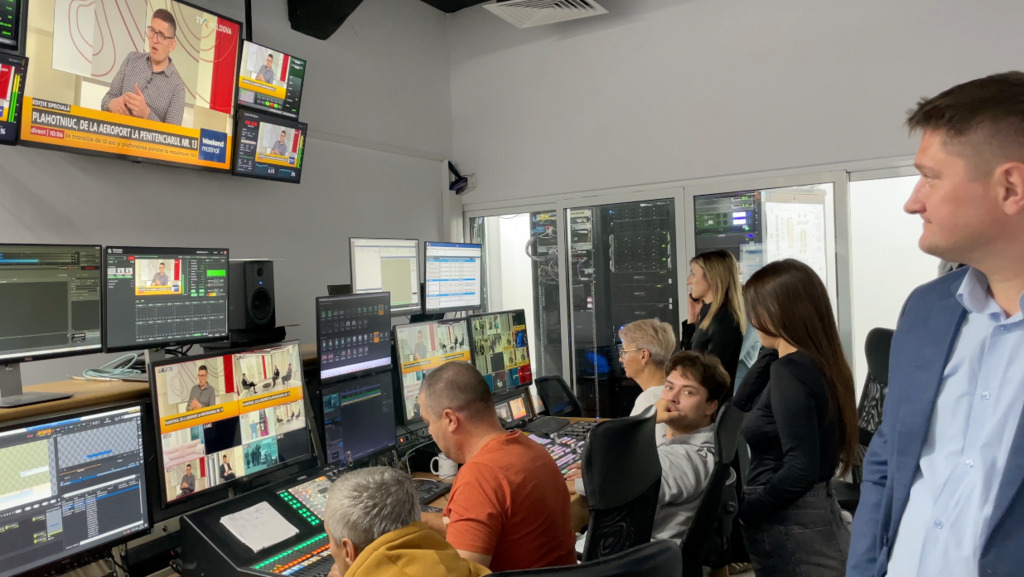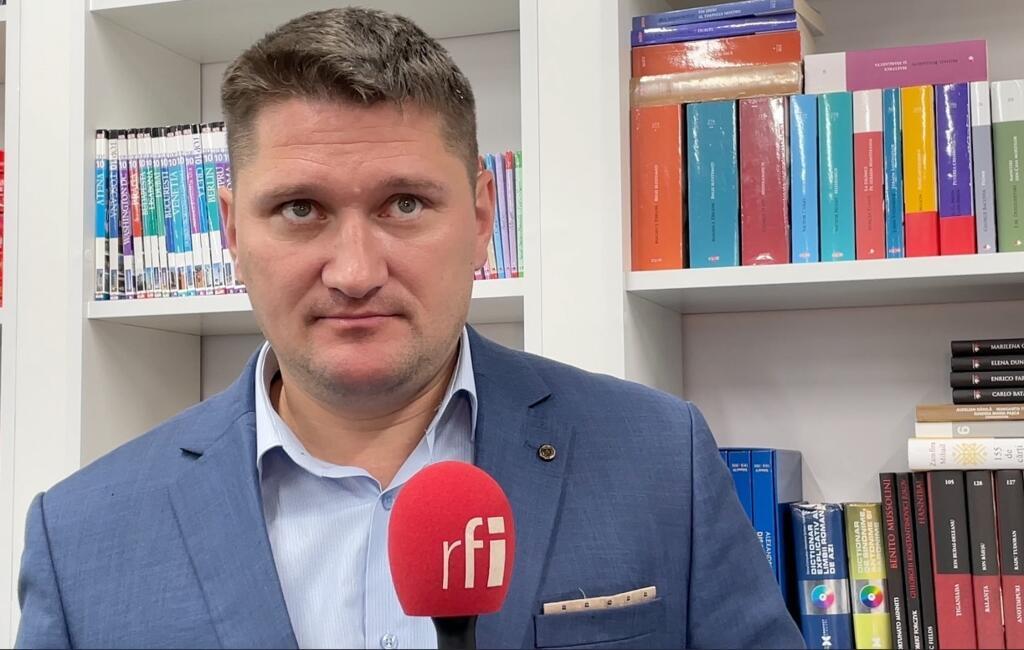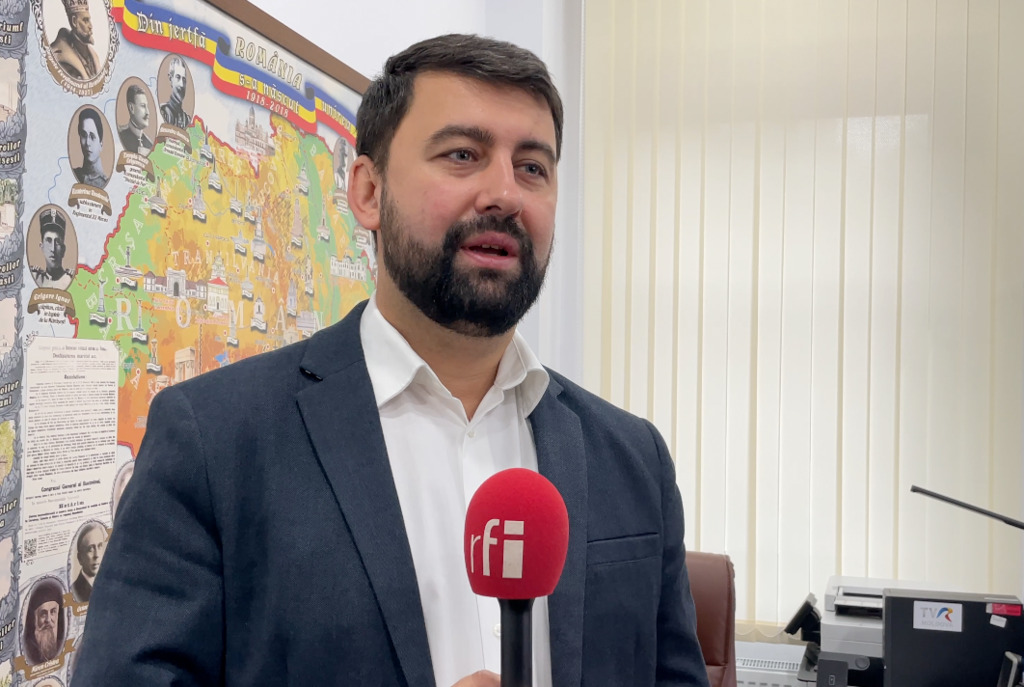
As Moldova approaches its parliamentary elections of 28 September, it finds itself at the epicentre of an unprecedented Russian disinformation campaign that has fundamentally altered how information reaches its citizens. The shift from television to social media platforms has created new vulnerabilities that Moscow has been quick to exploit.
Constantin Uzdrish, a producer with television channel TVR Moldova, has seen this transformation firsthand.
Having begun his career in 2010, just after Moldova emerged from Communist rule, he describes a media landscape currently under siege.
"The climate in the Republic of Moldova? Our media are trying to survive," Uzdrish told RFI, noting that the entire advertising market amounts to no more than €9 billion annually, creating a monopolistic environment where independent media struggles to thrive.
But the problem runs deeper than financial constraints. Moldova’s security services allege that Russia has spent approximately €100 million to undermine the upcoming elections, dwarfing local media budgets.
This massive investment has enabled sophisticated operations that have evolved from using traditional television broadcasts to social media networks.
'Unprecedented interference': how Russia is attempting to shape Moldova’s future

Soviet narratives
For decades, Russian influence in Moldova operated through conventional channels.
Uzdrish recalls how "many Russian channels were translated in Moldovan, starting from our independence in 1991 until 2022," when the authorities blocked Russian television following the invasion of Ukraine.
However, he believes this came too late to prevent deep cultural penetration.
"During [the time that media oligarch Vladimir] Plahotniuc ruled Moldova’s media landscape, they banned just talk shows. But every year, from the end of April through 9 May [when the end of the Second World War is commemorated] all channels would broadcast translated World War Two movies,” he says.
These films consistently promoted Soviet narratives. "We fight for Stalin, we fight for our big country, we fight for the USSR,” Uzdrish says, recalling the main themes.
A digital army
When, in 2022, Russian-backed television channels were blocked, the operation simply migrated online.
Intelligence services have observed an increase in propaganda channels on TikTok and Telegram, as well as anonymous Facebook pages distributing sponsored extremist content.
Facebook and Instagram parent company Meta has removed networks targeting Russian-speaking audiences in Moldova, which operated across multiple platforms including Facebook, Telegram and TikTok.
One pro-Russian disinformation campaign, dubbed "Matryoshka", has promoted false claims including allegations that Moldova's President Maia Sandu embezzled €24 million and is addicted to "psychotropic drugs". This operation has came up with 39 such false claims in just three months.
Moldova President warns European parliament about Russia threat
Between December 2024 and March 2025, there were 11,250 pro-Kremlin articles published per million inhabitants – more than 18 times higher than in Romania and 56 times higher than the Western European average.
According to fake news watchdog Digital Forensic Research, the campaign employs artificial intelligence and creates networks of fake accounts.
Researchers have identified a "digital army" of at least 90 accounts associated with Russian operations.
Nicolae Mocanu, TVR Moldova’s director, confirms the unprecedented nature of the current interference.
"I think we never saw propaganda like today, because the Russians spend a lot of money here. They change their ways, they use artificial intelligence, they use everything," he told RFI.

Existential challenge
Meanwhile, Moldova’s traditional media is facing an existential challenge as audiences migrate to digital platforms – a trend that plays directly into Moscow's hands.
Uzdrish says that his outlet has responded by developing multiple social media channels, growing their YouTube audience from 10,000 to 30,000 subscribers in a single year.
"If you are not on the one web platform, you don’t exist within the media area," Uzdrish says and, waving his mobile phone, adds that he estimates the elections will be decided for "more than 20 to 25 percent by this gadget".
Moldova will keep pro-EU course despite Russian threat, Popescu tells RFI
The implications go far beyond Moldova's borders.
During the country's 2024 presidential elections and EU referendum, attempts were made to buy an estimated 150,000 votes through criminal networks tied to pro-Russian actors.
"Moldova is at war with Russia, even though not a single shot has been fired,” noted the United States Institute for Peace in a report.
For Uzdrish, EU membership represents not just a political choice but a survival mechanism.
"Moldova needs to become a EU member, it is a necessity for our existence. We are a small country without big possibilities."







